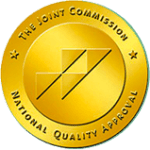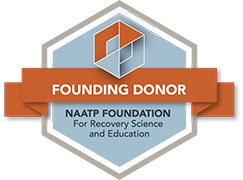Could Impostor Syndrome Threaten My Recovery?
Impostor syndrome is the feeling that your successes in life are merely the result of luck or deception and that you don’t really deserve to be where you are. People with impostor syndrome often feel like frauds. Whenever someone compliments them on having done something well, they feel inwardly guilty, like they’ve managed to pull off yet another scam, tricking their peers into thinking they are more capable or intelligent than they actually are. People with impostor syndrome live with the fear that they will be found out at any moment and get what they deserve, which is probably something horrible.
Living with impostor syndrome can be extremely stressful. You may fear being exposed as a fraud, that you will lose everything you’ve earned, or that people will stop liking you once they discover you’ve been deceiving them. These feelings can lead to anxiety and depression, which can endanger your recovery if you do not search for the source of your insecurity and find healing for this particular pain.
The causes of impostor syndrome are complicated. They often have to do with family expectations, especially if you’ve been labeled as “the smart one” or been given some other high expectation from a young age. If you’ve been told you’re smart, creative, or capable before you understood what those things meant or before you could see evidence of it, the label might seem empty. You may become dependent on other people’s assessment and validation of you, making your self-esteem rather fragile.
Impostor syndrome is also associated with changing environments, such as when you change schools or jobs. The unfamiliar environment leads you to compare yourself to your new peers. However, you don’t yet know your peers very well. It’s essentially like comparing your real, messy life to the perfect life other people show on social media. You’re going to feel like you don’t belong.
Impostor syndrome can endanger your recovery in several ways. First, as noted, it can lead to anxiety and depression, which can trigger cravings and relapse. Impostor syndrome can also damage relationships. It’s important to have strong social support, especially people you can trust and confide in. If you’re always afraid of being unmasked as a phony, you’ll be less likely to open up to people and you’ll have more trouble forming close relationships. Finally, impostor syndrome can drag you down when you’re doing well. You might have a year of sobriety, a good job, good friends, and still have a voice in your head that tells you you’re just an addict, that you’ve been lucky so far, and that any day it will all come crashing down.
Overcoming impostor syndrome is mainly a matter of changing the way you think. That certainly isn’t easy, and you may need the help of a therapist. People with impostor syndrome often discount positive feedback. If something turns out well, they find a way to invalidate it. For example, say your boss praises your work on a project. If you procrastinated on it, you might think you just got lucky. However, if you worked hard on it, you might think a more capable person would have done it faster and more easily. There’s no way to win when this kind of black and white thinking is involved. One way around this is to separate your actions from your identity. In reality, there is no objective designation of “smart” or “capable” that means anything. You either got a result you wanted or you didn’t. If you didn’t get the result you wanted, you can try again. If someone, especially the someone who pays you, is pleased with your work, take that at face value.
Perfectionism is another major driver of impostor syndrome. This often goes back to family expectations. The idea that you have to do everything perfectly will make you feel like a fraud because you can never do things perfectly, but if you do things very well, you’re likely to succeed anyway. Now you have an apparent contradiction between your success and your imperfect performance. Identifying perfectionism and making an effort to let go of it will also reduce your feelings of being an impostor. Focusing on improvement rather than perfection, and reminding yourself that making mistakes is normal are good ways to start.
Finally, try to cultivate internal motivation. When you are mainly concerned about pleasing others, it’s difficult to judge your own efforts. If you know what you want to accomplish and why, you can more accurately gauge your own success. This is especially important in recovery. While it’s good to have feedback from your therapist, counselor, friends, family, and mentors, only you know for sure whether you’re putting quality effort into your recovery and whether you’re pleased with your progress. Fortunately, there’s a metric that’s impossible to fake: Days sober. If you’ve been sober for a month, let go of the temptation to dismiss that achievement as luck. You did that because you put in the effort. Keep in mind that anyone can experience impostor syndrome. It’s likely that some of the people you admire most have felt like phonies at some point. All you can do is your best, by your own standards.
Established in 1939, High Watch is the world’s first 12-Step treatment center. Every individual who walks through our doors joins a definitive culture of compassion, dignity, and respect from a genuinely caring staff dedicated to seeing the disease of addiction find remission. Providing proven therapeutic approaches and comprehensive 12-Step education, patients leave High Watch with the confidence to maintain abstinence and live a healthy, happy, sober life. Start your journey today by calling 860.927.3772.








